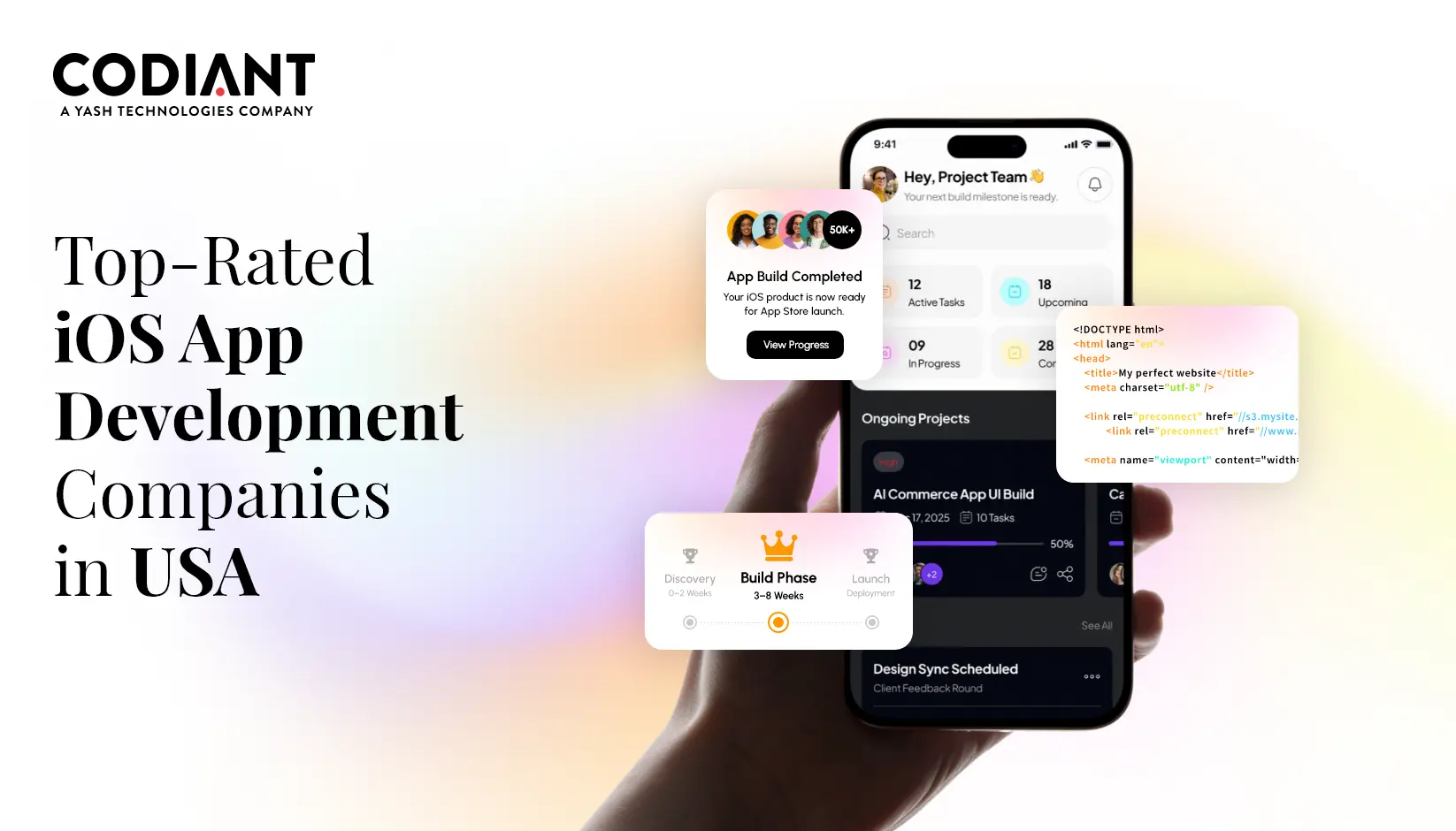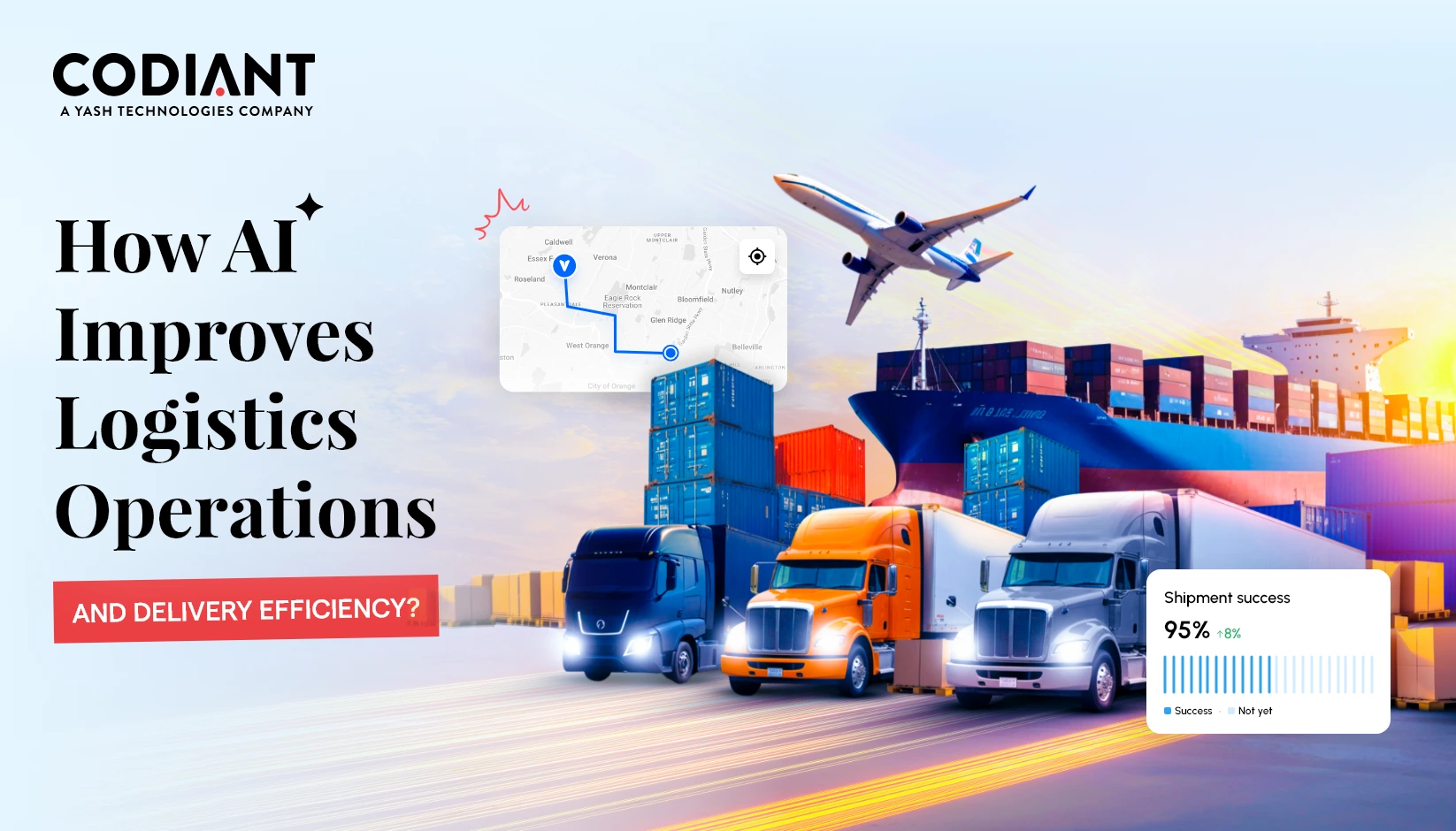AI in Hospitality Industry: How Artificial Intelligence Boosts Efficiency Across Hotels
Table of Contents
Subscribe To Our Newsletter

The hospitality industry has always been about creating memorable guest experiences. But in 2025 and beyond, experience is no longer limited to luxury rooms or fine dining — it’s about speed, personalization & efficiency. This is where AI in hospitality is changing the game. From check-in kiosks to chatbots handling midnight queries, hotels are increasingly relying on artificial intelligence to optimize operations & delight guests at scale.
In this blog, we’ll take a deep dive into the use of AI in hospitality industry, exploring how hotels are adopting smart technologies, the benefits for staff and guests, real-world examples & what the future holds for AI in hotel industry.
Why Hotels Are Betting Big on AI
The hospitality industry is under constant pressure. Guests expect instant service personalized experiences & seamless journeys. At the same time hotels are dealing with rising operational costs staff shortages & competition from platforms like Airbnb.
AI offers a way to bridge this gap. Think about it – repetitive tasks like check-ins, answering FAQs or adjusting room settings don’t always need a person. By automating them with AI in hotel industry, staff can focus on high-value, human interactions.
A study from Deloitte found that hotels adopting AI tools can save 20: -30% on operational expenses while actually improving customer satisfaction. In other words, efficiency doesn’t come at the cost of experience—it enhances it.
Everyday Applications of AI in Hospitality

Let’s break down where we’re already seeing the use of AI in hospitality industry and why it matters.
1. Chatbots: The New Front Desk
Guests don’t want to wait for business hours to get answers. That’s why chatbots in hospitality have become so popular.
These AI assistants:
- Answer simple questions 24/7 (like Wi-Fi password or pool timings).
- Help with bookings, cancellations, or upgrades instantly.
- Speak multiple languages, making global travel smoother.
- Even upsell services, like suggesting a spa package or wine tasting.
For hotels, this reduces the load on front-desk staff. For guests, it feels like instant service on demand. Marriott and Hyatt are already using AI chatbots across websites and apps & the feedback has been overwhelmingly positive.
2. Contactless Check-In and Smart Kiosks
The pandemic accelerated a trend that’s here to stay—contactless service. With AI-enabled kiosks or mobile apps, guests can:
- Check in without waiting in line.
- Use facial recognition or QR codes to access rooms.
- Get upgrade recommendations in real time.
This doesn’t just improve convenience; it also frees up staff to handle complex guest needs rather than paperwork.
3. Personalization at Scale
Hospitality is personal by nature. But personalization becomes tough when you’re serving thousands of guests each week. This is where artificial intelligence in hotels helps out.
AI can spot patterns humans often miss. It learns guest preferences quickly and then works as per that. With that knowledge, hotels can tailor services automatically. Imagine walking into your room after a long flight and finding it already set to your favourite temperature with your go-to bottle of wine waiting on the table.
AccorHotels, for example, has been using AI-driven analytics to send personalized offers to guests, boosting loyalty and repeat bookings.
4. Smarter Revenue Management
Pricing in hospitality is a science—and AI makes it smarter. Dynamic pricing powered by AI considers factors like:
- Seasonality and booking patterns.
- Local events and competitor rates.
- Historical demand and predictive modeling.
The result? Hotels can maximize occupancy while ensuring profitability. AI in hotel industry brings data-driven accuracy to revenue management instead of relying only on human guesswork.
5. Housekeeping Made Smarter
Housekeeping is one of the most resource-heavy departments in any hotel. AI helps here too.
- Sensors detect when rooms are empty and ready for cleaning.
- Predictive systems forecast demand for laundry or room supplies.
- Robots like Aloft’s “Botlr” deliver towels or amenities without human help.
This ensures rooms are cleaned faster, staff workloads are balanced & guest satisfaction remains high.
6. Voice-Enabled Experiences
Many hotels are now introducing in-room voice assistants. Guests can simply say:
- “Turn on the lights.”
- “Play jazz music.”
- “Order breakfast at 8 am.”
Wynn Las Vegas rolled out Amazon Echo devices across its rooms, showing how AI in hospitality industry blends convenience with luxury.
7. Predictive Maintenance
Imagine you have booked a room and you discovered that the AC stops working on a hot night. It’s a nightmare for guests & costly for hotels. AI solves this with predictive maintenance.
AI can spot issues before they become breakdowns by simply analyzing real-time performance data. This not only saves money on emergency repairs but also keeps the guest experience seamless.
8. Fraud Prevention and Security
Hotels handle sensitive data daily, from passports to credit cards. Artificial intelligence in hotels is strengthening security by:
- Detecting fraudulent payment activity in real time.
- Using facial recognition for access control.
- Monitoring unusual guest behavior to prevent risks.
Luxury hotels in Asia and Europe have already started using AI for secure, touchless check-ins.
Read more: How Conversational AI is Reshaping the Customer Experience
Benefits of AI in Hotel Industry
So, what’s in it for both sides?
For Guests:
- Faster service and fewer delays.
- More personalized stays.
- Safer transactions and environments.
- Consistency in service across platforms.
For Hotels:
- Reduced labor and operational costs.
- Higher revenues through smarter pricing and upselling.
- Improved guest loyalty and satisfaction scores.
- Data-driven insights for decision-making.
Turn Operations into Opportunities
AI doesn’t just reduce costs – it builds loyalty and boosts margins across hotels.
Artificial Intelligence in Hotels: Examples of Leading Solutions
Every hotel does not have the resources to build its own AI platform from scratch. That is why many properties depend on dedicated AI tools built precisely for hospitality. Here are five solutions that are making a noticeable impact in the industry:
- Aiosell
Aiosell is known for its “always-on” approach to dynamic pricing. Instead of managers updating room rates manually the system adjusts prices automatically by analyzing demand, competitor rates, local events & seasonality. For hotels this means fuller occupancy and better revenue without the daily pricing guesswork. - EasyWay
EasyWay simplifies the messy world of guest communication. It pulls WhatsApp, SMS and live chat into one AI-powered dashboard so hotels can handle all guest interactions in one place. Guests get quick personalized replies about everything from check-in instructions to spa bookings, while staff save hours on repetitive messaging. - Atomize
Atomize is a revenue manager’s best friend. Its AI constantly recalculates room rates throughout the day — not once every morning. That level of agility helps hotels capture demand spikes (say, after a concert announcement) and avoid leaving money on the table. It’s especially popular in competitive markets where rates can swing by the hour. - Myma.ai
Myma.ai plays the role of a digital concierge. Guests can ask about local attractions, order services or get quick answers in natural conversational language. Since it supports multiple languages, it is a lifesaver for international hotels with a diverse customer base. The end result? Guests feel supported 24/7 while front-desk teams focus on higher-value tasks. - Allora AI
For hotels looking to cut down on OTA (online travel agency) commissions, Allora AI is a direct booking engine powered by predictive analytics. It studies website visitor behavior in real time and serves up tailored offers to nudge them toward booking directly. More direct reservations mean more control over margins — and stronger long-term profitability.
Read more: Travel and Hospitality Industry Tech Trends: Your Guide For The Digital Journey Ahead
Real-World Examples of Artificial Intelligence in Hotels
AI in hospitality isn’t just theory anymore—it’s already making a difference in hotels across the globe. Here are a few examples that stand out:
Hilton’s “Connie” Robot Concierge
Hilton made headlines by introducing Connie, the first-ever AI-powered hotel concierge. Powered by IBM Watson, Connie greets guests answers questions about amenities & even shares dining and sightseeing recommendations. It’s not replacing staff but rather giving them more time to focus on personalized service.
Edwardian Hotels’ AI Assistant “Edward”
In London, Edwardian Hotels created “Edward,” a virtual assistant available through SMS. Guests can text Edward for anything – extra towels, dinner reservations or local tips. The AI handles thousands of requests every day ensuring quick responses without overloading the staff.
Marriott’s AI Chatbots
Marriott International uses AI-powered chatbots on platforms like Facebook Messenger to help travelers book rooms, check reservations, and get instant 24/7 support. By leveraging conversational AI in Hospitality Industry, the brand ensures a seamless and personalized experience for every guest.
Aloft Hotels’ Botlr Robot
Aloft Hotels introduced “Botlr,” a delivery robot that brings snacks, towels, or toiletries right to the guest’s door. Botlr doesn’t need tips but it does leave guests smiling – and it shows how robots can take over simple tasks so staff can focus on higher-value interactions.
Future of AI in Hospitality Industry
Looking ahead, here’s what we can expect:
- Hyper-personalization: – AI predicting guest needs before they even check in.
- IoT integration: – Smart rooms adjusting lighting, minibar refills, or maintenance automatically.
- Generative AI: – With the Generative AI app development the hotels creating personalized itineraries and recommendations in real time.
- Staff empowerment: – AI tools helping employees work smarter, not harder.
The future of AI in hospitality industry won’t be about machines taking over. It’ll be about humans and AI working side by side to deliver exceptional experiences.
Best Practices for Hoteliers Getting Started with AI
If you’re a hotel thinking about implementing AI, here are some simple steps:
- Start small: Begin with chatbots or contactless check-in.
- Focus on guest pain points: Choose areas where delays or inefficiencies impact satisfaction.
- Train staff: Make sure employees know AI is there to assist, not replace.
- Ensure security: Protect guest data with strong cybersecurity practices.
- Combine tech with human touch: Use AI to free up staff time for more personal interactions.
Wrapping Up
Hospitality has always been about people. What’s changing is how hotels deliver that experience. AI isn’t here to replace the front desk smile or the concierge’s local knowledge – it’s here to remove the bottlenecks that slow everything down.
When a chatbot handles the midnight “what’s the Wi-Fi password” question, your staff can focus on fixing the problem that really matters. When pricing tools update rates 50 times a day, your revenue team can stop playing catch-up and start planning ahead.
That’s the real promise of AI in hospitality industry – it gives hotels back the one thing they’ve always wanted more of – time. Time for staff to engage with guests. Time for managers to think strategically. Time for businesses to grow.
The question isn’t whether you’ll use AI in your hotel. It’s whether you’ll be early enough to make it a competitive advantage – or late enough that you’re just catching up.
Is Your Hotel Future-Ready with AI?
Reimagine guest journeys, optimize operations, and unlock growth with next-gen hospitality intelligence.
Frequently Asked Questions
Even a 20-room boutique hotel can get benefit from AI. A simple AI chatbot can answer guest questions at night when staff isn’t around or a pricing tool can adjust rates automatically so the manager does not have to keep checking competitors.
Balance is the trick, let AI handle the boring stuff – like confirming bookings or giving directions – so staff have more time to add the personal touches. Most guests don’t mind AI if it makes service faster & easier.
Integration. Many hotels already use PMS or booking systems, and connecting AI tools to them can be messy. It’s not always plug-and-play. That’s why starting with one small tool, like guest messaging, usually works best.
It’s real. Hotels using AI pricing systems often see occupancy and revenue go up because rates adjust to demand in real time.
If the bot is helpful, most guests don’t care. They just want quick answers. But if the bot feels too robotic or gives wrong info, frustration kicks in fast. That’s why hotels still need staff as a backup.
Featured Blogs
Read our thoughts and insights on the latest tech and business trends
Top iPhone App Development Companies in USA in 2026
- February 18, 2026
- Mobile App Development
In a Nutshell The USA remains one of the strongest hubs for premium iPhone app development in 2026, especially for fintech, healthcare, retail, and SaaS brands. Choosing the right iOS partner goes beyond portfolios; the... Read more
How to Choose the Right AI Development Partner in the USA (Enterprise Guide 2026)
- February 12, 2026
- Artificial Intelligence
In a Nutshell Enterprise AI success starts with clear business goals, not vague plans like “we need AI.” The best AI development partners deliver real production systems, not just impressive demos or prototypes. Industry alignment... Read more
How AI Is Transforming Transport & Logistics Operations in Real Time
- February 10, 2026
- Artificial Intelligence Logistics & Transportation
In a Nutshell: AI in transport & logistics is enabling faster, smarter decision-making across fleets, warehouses, and supply chains. Real-time logistics optimization improves route planning, dispatching, and delivery efficiency as conditions change. AI-driven forecasting and... Read more





